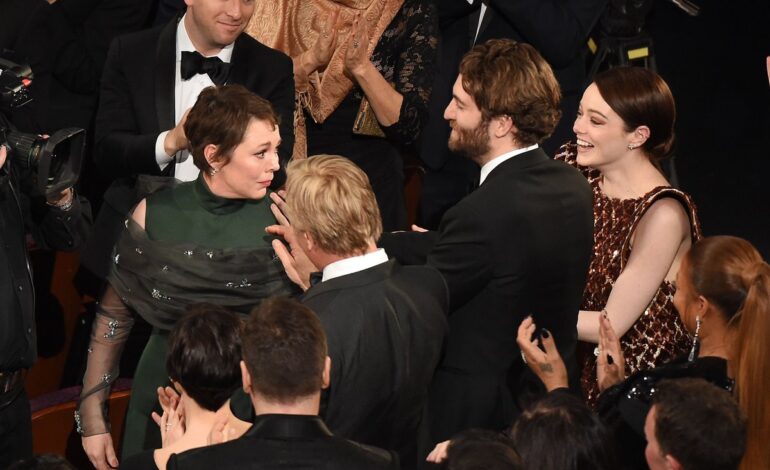Paramount’s Stand: Hollywood Giants Push Back on Boycott Pledge Targeting Israeli Film Industry

Hello, champions of change. This is Elena West stepping into the spotlight with a truth bomb and a rallying cry: the big players are taking a stand, and the move could redefine how Hollywood wrestles with global politics while defending artistic freedom. Get ready, because this is game-changing. Paramount Pictures just fired a bold counterpunch against a sweeping pledge that would strand Israel’s film industry in a boycott. On the surface, this is about a statement, but dig deeper and you’ll see a collision of values, economics, and the power of storytelling in a world that loves to argue about what movies owe the moment. The stakes are high, the voices are louder, and the tempo is faster than a premiere red carpet chase.
In recent days, more than 4,000 actors and filmmakers signed an open letter, a remarkable show of solidarity inspired by Filmmakers United Against Apartheid. The missive called for not screening or working with Israeli film institutions that the signatories deem complicit in genocide and apartheid against Palestinians. Names at the top of the roster include Olivia Colman, Lily Gladstone, Emma Stone, Peter Sarsgaard, and Elliot Page, and Ava DuVernay lent her influence as a director. The phrasing hearkened back to 1987, evoking Scorsese and Demme as historical touchstones for artists resisting apartheid in South Africa. The open letter urged a complete disengagement from Israeli film studios, festivals, cinemas, broadcasters, and production companies that are deemed implicated.
Paramount Pictures, stepping onto a global stage, became the first major studio to publicly reject the pledge. In a pointed statement shared with Deadline, Paramount condemned the boycott push by Workers for Palestine as an attempt to silence individual creative artists based on nationality. The studio framed its stance as a defense of the storytelling ethos that unites audiences across borders. Paramount emphasized that the future of cinema lies in connection, conversation, and shared human experiences — not in pulling back from engagement. This is a direct challenge to a moment of artistic withdrawal and a reminder that movies often travel farther than political borders.
The studio’s response underscores a broader industry tension: how do entertainment companies balance moral outrage, audience sensitivities, and the imperative to support diverse voices, while not appearing to stifle dissent or pigeonhole entire national communities? Paramount’s leadership said, in effect, that the global entertainment ecosystem should foster dialogue rather than enforce blanket bans. They argued that more engagement and communication are essential to storytelling’s power, and they rejected any approach that would reduce the creative market to a political battlefield.
Proponents of the boycott, including backers of the open letter, counter that shining a light on human rights abuses requires public pressure and cultural leverage. They contend that cinema can be a lever for accountability, not just entertainment. Meanwhile, the Israeli Film and TV Producers Association pushed back, stating that the signatories are targeting the wrong players, suggesting the boycott misfires by implicating artists who may not be connected to policy decisions or the institutions in question.
As this drama unfolds, observers note that Paramount’s stance could influence how other studios respond to the pledge and how industry-wide collaborations evolve in a climate already charged with geopolitical tensions. The moment invites a larger discussion about artistic freedom, national identity, and the responsibilities of filmmakers who sign open letters that ripple across festival screens, streaming platforms, and international co-productions.
So, what does this mean for you, the reader who loves a good, well-sourced scoop? It signals a turning point where corporate voices push back against collective punitive measures in the realm of culture. It also shines a spotlight on how studios weigh public sentiment against the duty to support artists regardless of nationality. And it sets the stage for new conversations about how Hollywood navigates moral lines without blunting the impact of advocacy.
Stay tuned, because the next chapter might redefine how studios negotiate with politics, audiences, and the stories they bring to life. Will more studios follow Paramount’s lead or tune the orchestra to a different political tempo? The answer will come as executives meet, boards deliberate, and filmmakers decide which scripts will be celebrated on screens worldwide.
Now, you’ve got the full picture: a landmark studio stance, star-powered signatures, and a global conversation that refuses to slow down. Buckle up, because this is the kind of industry shakeup that redefines the arc of a season in cinema and beyond.
Sources: Celebrity Storm and Paramount Pictures, Deadline, Israeli Film and TV Producers Association
Attribution: Creative Commons Licensed (GO)
Attribution: Creative Commons Licensed (GO)




